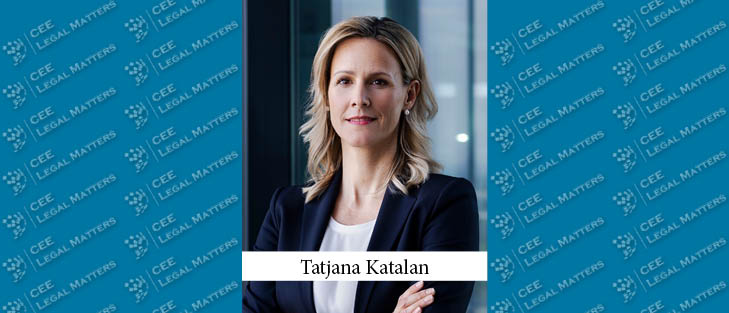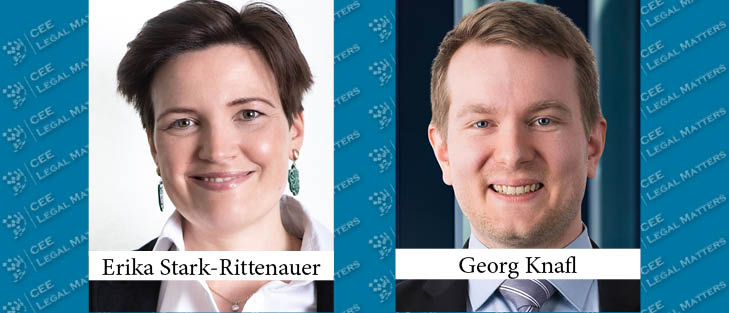Schoenherr has advised Fynk on its recent approximately EUR 3.1 million seed financing round led by 3VC with the participation of 10x Founders. CMS advised 3VC.
BPV Huegel Advises AMS Osram on Reverse Share Split
BPV Huegel has advised AMS Osram on a reverse share split.
Dorda Advises 0815 Group Shareholders on Investment from The Platform Group
Dorda, working with Frankfurt-based Luther, has advised the shareholders of 0815 Group on an investment from The Platform Group. PHH and Heuking reportedly advised TPG.
Schoenherr Advises Lisec Holding on Glastech Sale
Schoenherr has advised Lisec Holding on the sale of its subsidiary Glastech to Josko-Scheuringer Holding. Saxinger reportedly advised Josko was advised by Saxinger.
Schoenherr Advises Cherry Ventures on Flinn AI Seed Financing Round
Schoenherr has advised Cherry Ventures on leading the EUR 6 million seed financing round for Flinn AI that also saw the participation of Speedinvest and SquareOne as well as more than 30 business angels. Brandl Talos reportedly advised Flinn AI.
Wolf Theiss Advises the IFC on EUR 75 Million Anchor Investment in Voestalpine Green Notes
Wolf Theiss has advised the International Finance Corporation on a EUR 75 million anchor investment in Voestalpine green notes.
Katerina Schenkova Moves In-House as Regional Compliance Officer at Thyssenkrupp
Former Baker McKenzie Senior Associate Katerina Schenkova has joined Thyssenkrupp as its new Regional Compliance Officer.
BPV Huegel and Wolf Theiss Advise on Immofinanz's Increase of S IMMO Shareholding
BPV Huegel has advised Immofinanz on the acquisition of a further approximately 38% stake in S IMMO via a share acquisition from CPI Property Group for EUR 608.5 million. Wolf Theiss advised CPI Property Group.
Tatjana Katalan and Team Join Dorda
Former E+H Equity Partner Tatjana Katalan and her team have joined Dorda.
Fabiani, Petrovic, Jeraj, Rejc and MP Law Merge
Fabiani, Petrovic, Jeraj, Rejc and MP Law have merged as of September 30, 2024, to create PFP Law.
Cerha Hempel Advises AT&S on Sale of AT&S Korea to SO.MA.CI.S
Cerha Hempel has advised AT&S on its sale of AT&S Korea to SO.MA.CI.S. Schoenherr, Latham & Watkins, and Kim & Chang reportedly advised the buyers.
Schoenherr and E+H Advise on Insight Partners' Investment in Flightkeys
Schoenherr has advised a group of sellers of Flightkeys on an investment from Insight Partners. E+H, working with Willkie Farr & Gallagher, advised Insight Partners. Deloitte Legal-affiliated Jank Weiler Operenyi and Grohs Hofer reportedly advised other sellers of Flightkeys.
Birgit Kraml Joins DLA Piper as Partner
Former Wolf Theiss Partner Birgit Kraml has joined DLA Piper as Partner and the new Head of Real Estate at the firm’s Vienna office.
CMS and Freshfields Advise on AVL's Sale of Piezocryst to Spectris
CMS has advised AVL List on the sale of its subsidiary Piezocryst to Spectris. Freshfields Bruckhaus Deringer advised the buyer.
Managing Multinational Legal Teams: A GC Summit Summary
Navigating the complexities of managing multinational legal teams requires a blend of strategic foresight, robust communication skills, and a profound understanding of diverse legal frameworks. Drawing on over two decades of experience, former Paysafe Associate General Counsel Christopher Fischer shared during the 2024 CEE General Counsel Summit his strategies for aligning diverse teams toward a unified goal, emphasizing the necessity of effective leadership in the globalized legal environment of the time.
E+H and Schoenherr Advise on Fisker's Restructuring and Insolvency
E+H has advised CVI Investments and Heights Capital Management on the restructuring and insolvency proceedings of Fisker. Schoenherr advised Fisker.
Erika Stark-Rittenauer and Georg Knafl Join E+H as Partners
Former Wolf Theiss Attorney at Law Georg Knafl and former OEBB-Holding Senior Compliance Expert Erika Stark-Rittenauer have joined E+H as Partners in the firm's public law department and the firm's compliance and investigations team, respectively.
Dorda Advises P95 on Takeover of Assign DMB
Dorda, working with McDermott Will & Emery and Quinz, has successfully advised P95 on its acquisition of the Austrian CRO Assign DMB.

































